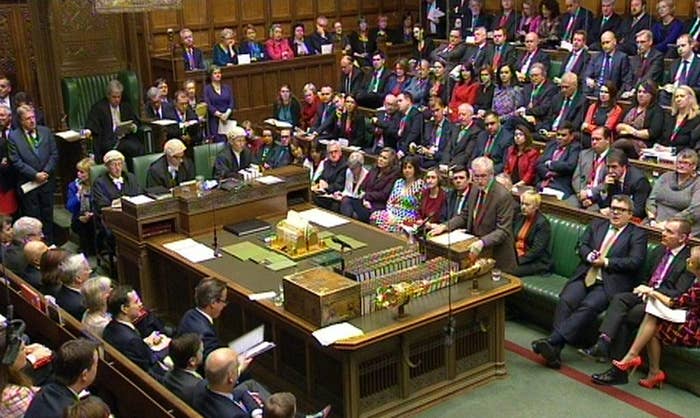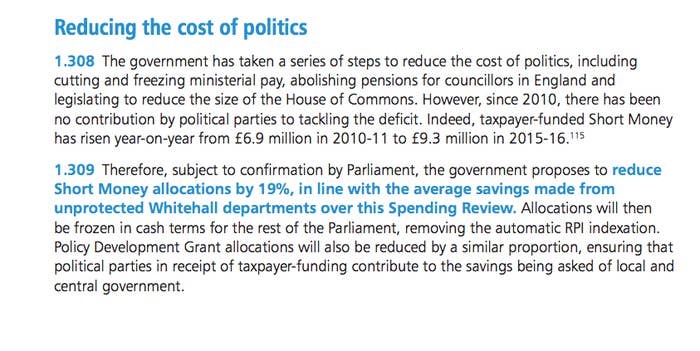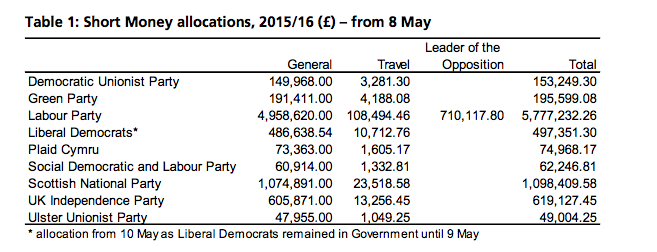
George Osborne has been branded "anti-democratic" for seeking to slash the funding of Labour and other opposition parties by 19%.
The planned cut in so-called "Short money" was buried in the back of the Autumn Statement, which was published by the Treasury on Wednesday.
Opposition parties are entitled to millions of pounds of public money to help pay for policy research so the government can properly be held to account. To qualify, parties must have at least two MPs or one MP and more than 150,000 votes.
The funding takes its name from ex- Labour MP Ted Short who introduced the measure in 1975 when he was leader of the House of Commons.
The government wants to cut Short money by 19% "in line with the average savings made from unprotected Whitehall departments".

The Treasury pointed out that the taxpayer-funded pool of money had risen from £6.9 million in 2010-11 to £9.3 million in 2015-16.
They said it was time political parties "contribute to the savings being asked of local and central government". Sources close to the chancellor said the cut would save around £10 million over the next four and a half years.
But the move will first have to be approved by the House of Commons.
This is how much the opposition parties currently get in Short money.

Labour party will receive around £6.5 million in 2015-16. A 19% cut would see that reduced by more than £1.2 million. The Scottish National Party, which receives just under £1.1 million this year, would see a cut of around £210,000.
Labour branded the move "anti-democratic" and said the Tories should start cutting their own special advisers' bill first.
A party spokesperson said: "Having already attacked the rights of working people they're now coming forward with partisan moves to hit their opposition and give themselves another unfair advantage.
"If the Tories were really serious about cutting the cost of politics they would start with the bill for Tory special advisers which has rocketed under David Cameron." Labour said the cost of special advisers had increased by £2.19 million or 35% between 2011-12 and 2013-14.
The proposed cut to short money comes as the government pushes forward with its Trade Union Bill which could lead to another big drop of income for Labour.
The Liberal Democrats were also furious. A spokesperson said: "This is not a cut in the cost of politics; it is an attack on democracy.
"While on the one hand the government wants to cut short money, they are spending £289 million, this year alone, on government spinners and marketing. This proposal is a purely partisan move that will backfire on the government disastrously."
The Electoral Reform Society said Britain spends a tenth of the European average on funding parties.
Katie Ghose, the body's chief executive, said: "Short money is designed to level the playing field and ensure that opposition parties can hold the government of the day to account. This cut could therefore be deeply damaging for accountability.
"The whole party funding system is a complete mess as it is, but this measure risks making it worse. By removing public money from the mix, this cut risks making parties even more reliant on big donors – with all the potential for corruption that entails."
